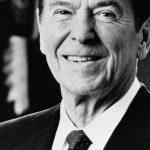Nevada’s Controversial Book Restriction Bill Sparks Intense Community Debate
Voices from the Community Shape the Discussion on Book Restrictions
Recent legislative sessions in Nevada have ignited a fervent debate as lawmakers deliberate a bill proposing limitations on certain books available in public schools and libraries. Advocates supporting the bill emphasize the necessity of shielding children from content they deem inappropriate, citing concerns over themes they believe could negatively influence young readers. Many supporters shared heartfelt anecdotes from their personal and educational experiences, underscoring a commitment to preserving traditional values and protecting youth from exposure to controversial material.
In contrast, critics of the legislation warn that such restrictions threaten freedom of thought and intellectual diversity. Teachers, librarians, and civil rights advocates cautioned against the dangers of limiting access to literature, highlighting how censorship can stifle critical thinking and marginalize important perspectives. Drawing on historical precedents where book bans impeded social progress, opponents urged for policies that foster open discussion rather than impose limitations.
- Supporters focus on: safeguarding children and upholding moral standards
- Opponents emphasize: protecting academic freedom and promoting inclusivity
- Consensus: literature’s vital role in shaping societal values
| Group | Primary Concern | Suggested Approach |
|---|---|---|
| Parents | Exposure to sensitive topics | Limit access within school libraries |
| Educators | Maintaining diverse educational content | Preserve broad selection criteria |
| Students | Availability of multiple viewpoints | Encourage analytical thinking |
Emotional Appeals Highlight the Stakes for Educational Freedom and Student Access
The ongoing discussions around Nevada’s proposed book restrictions have stirred strong emotions among parents, teachers, and students. Proponents argue that limiting access to certain books is crucial to protecting children from content they find objectionable, emphasizing the role of families and schools in maintaining community values. One advocate passionately remarked, “Our children deserve to be shielded from ideas that could confuse their moral compass and disrupt their innocence.” This sentiment resonates with many who prioritize safeguarding educational materials aligned with their beliefs.
Opponents, however, stress the importance of educational freedom, warning that banning books curtails students’ exposure to diverse perspectives essential for developing empathy and critical thinking skills. Educators recounted instances where controversial books helped students engage with complex social issues. A high school senior poignantly stated, “Removing books is like erasing our chance to understand ourselves and the world around us.”
- Preserving values versus embracing diversity
- Protecting innocence versus fostering critical inquiry
- Parental authority versus student access
| Stakeholder | Core Concern | Emotional Emphasis |
|---|---|---|
| Parents | Appropriateness of content | Protecting children’s wellbeing |
| Educators | Integrity of education | Encouraging open conversations |
| Students | Access to knowledge | Personal growth and identity |
Constitutional Experts Highlight Legal Risks of Book Restriction Legislation
Legal analysts have voiced significant concerns regarding the constitutionality of Nevada’s proposed bill that seeks to limit access to certain books in educational and public settings. Critics argue that the legislation could infringe upon First Amendment protections by enabling arbitrary censorship, potentially leading to a broader suppression of free expression. Constitutional scholars point out that the bill’s vague definitions of “objectionable content” may grant excessive discretion to school officials, risking biased enforcement based on personal or political views rather than clear standards.
Highlighted constitutional issues include:
- Possible infringement on free speech rights guaranteed by the First Amendment
- Ambiguity in language causing inconsistent application and legal challenges
- Restrictions undermining academic freedom and intellectual diversity
- Disproportionate censorship affecting marginalized communities
| Legal Concern | Effect | Likely Consequence |
|---|---|---|
| First Amendment Rights | Potentially blocks protected speech | Legal challenges and court battles |
| Unclear Definitions | Uneven enforcement by authorities | Judicial intervention to clarify terms |
| Academic Freedom | Limits on curriculum and teaching | Restrictions on educators and students |
Calls for Balanced Policies to Protect Youth and Preserve Intellectual Liberty
As the legislative debate continues, advocates from both camps stress the importance of finding a middle ground that protects young readers while ensuring their access to a broad spectrum of ideas. Proponents of the bill argue for the establishment of clear, age-appropriate guidelines to prevent exposure to unsuitable material. Meanwhile, opponents caution that overly restrictive measures risk silencing vital voices and erasing important historical narratives, framing the issue as a fundamental battle over intellectual freedom. The heartfelt testimonies reveal the ongoing tension between honoring community standards and fostering an environment where challenging ideas can be explored.
Major points raised by advocates include:
- Implementing age-appropriate content guidelines without sweeping bans
- Protecting students’ rights to access diverse and inclusive literature
- Ensuring transparency and fairness in book selection processes
- Promoting parental involvement alongside expert educational judgment
| Advocate Group | Primary Position |
|---|---|
| Supporters | Shield children from harmful content |
| Opponents | Defend freedom of expression in education |
| Neutral Experts | Advocate for balanced review committees |
Looking Ahead: The Future of Book Access in Nevada’s Schools and Libraries
The ongoing controversy surrounding Nevada’s proposed book restriction legislation highlights the complex interplay between censorship, education, and freedom of expression. As lawmakers deliberate, they face the challenging task of reconciling diverse community perspectives while safeguarding constitutional rights. The resolution of this issue will not only shape the future of Nevada’s educational and public library systems but also contribute to the national dialogue on the limits of information access and intellectual freedom in American society.










